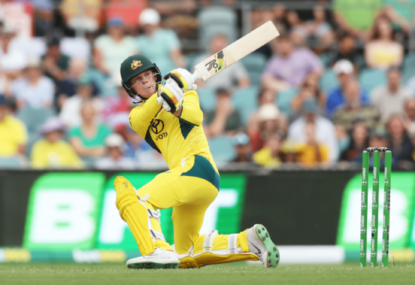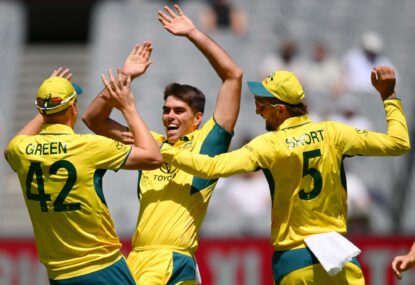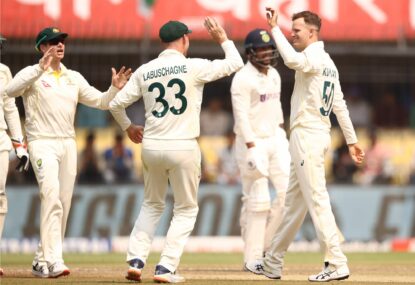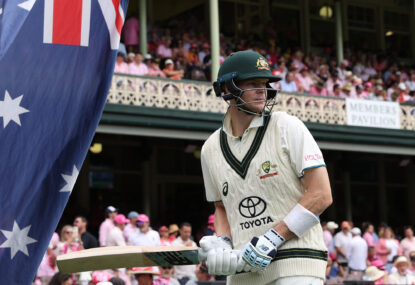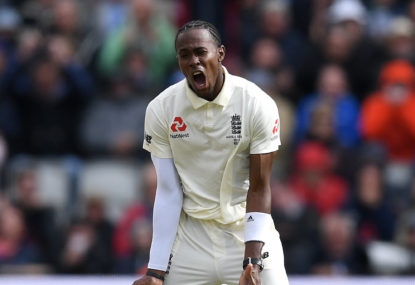By playing his final Test match at The Oval against India earlier this month, seasoned English opener Alastair Cook joined an illustrious list of cricketers to have walked into the sunset at the iconic London venue.
More often than not, The Oval has hosted the concluding Test of the English summer, making it a favoured venue for some great names to call time on their careers. Here is a look at ten renowned players who bid farewell to Test cricket at The Oval.
Donald Bradman (1948)
During Australia’s home series against India in 1947-48, Don Bradman, the greatest batsman of all time, made it known that the forthcoming Ashes in England would be his last Test series.
Despite being nearly 40 years old, Bradman not only captained the Australian ‘Invincibles’ (they did not lose a single game on the tour) to a 4-0 victory, but also accumulated 508 runs at an average of 72.57, including a fine 173* in a record chase of 404 in the fourth Test at Headingley.
Bradman needed only four runs more in his final Test at The Oval to end his career with a Test average of 100. Ray Lindwall (6/20) rolled England over for 52, after which Arthur Morris and Sid Barnes put on 113 for the first wicket.
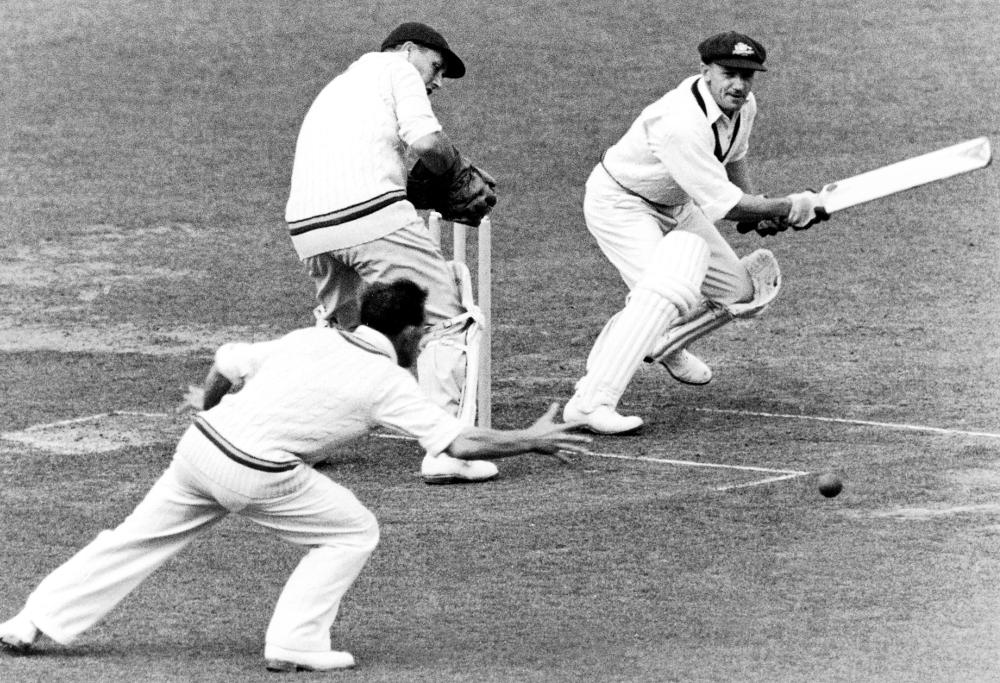
Australia’s Don Bradman (r) batting (Photo by S&G/PA Images via Getty Images)
Barnes’ dismissal to leg-spinner Eric Hollies brought Bradman to the crease, and considering the state of the match, it had dawned upon the spectators that this would, in all probability, be the Don’s last dig. They rose to give him a standing ovation.
The English captain Norman Yardley shook hands with Bradman, and called on his team for three cheers. As fate would have it, Bradman failed to score in his last outing. After surviving the first ball from Hollies, he played forward to the next one, which was a sharply turning googly that hit his off-stump.
The curtain thus came down on Bradman’s incredible Test career, during which he amassed 6996 runs at an immortal 99.94. Australia won by an innings and 149 runs.
Vivian Richards, Malcolm Marshall and Jeff Dujon (1991)
Three lynchpins of the all-conquering West Indian side of the 1980s retired together in the fifth and final Test of the 1991 series. The West Indies, under Richards’ captaincy, held a 2-1 lead after the first four Tests.
England, bolstered by Robin Smith’s 109, piled up 419 after electing to bat. Marshall returned 1/62 off his 24 overs.
Left arm-spinner Phil Tufnell (6/25) then produced a stellar spell to cut through the West Indian batting, sending the score from 158/3 to 176 all out. Dujon and Marshall both fell for ducks, out to David Lawrence and Tufnell respectively, while Richards, who batted at number eight due to a headache, was consumed by Tufnell for two runs.
For the first time in 22 years, the West Indies were asked to follow-on. Their second attempt was better, with Richie Richardson (121) and Carl Hooper (54) leading the comeback. ‘King Viv’ walked out with his customary swagger for one final time after Hooper was fourth out at 208.
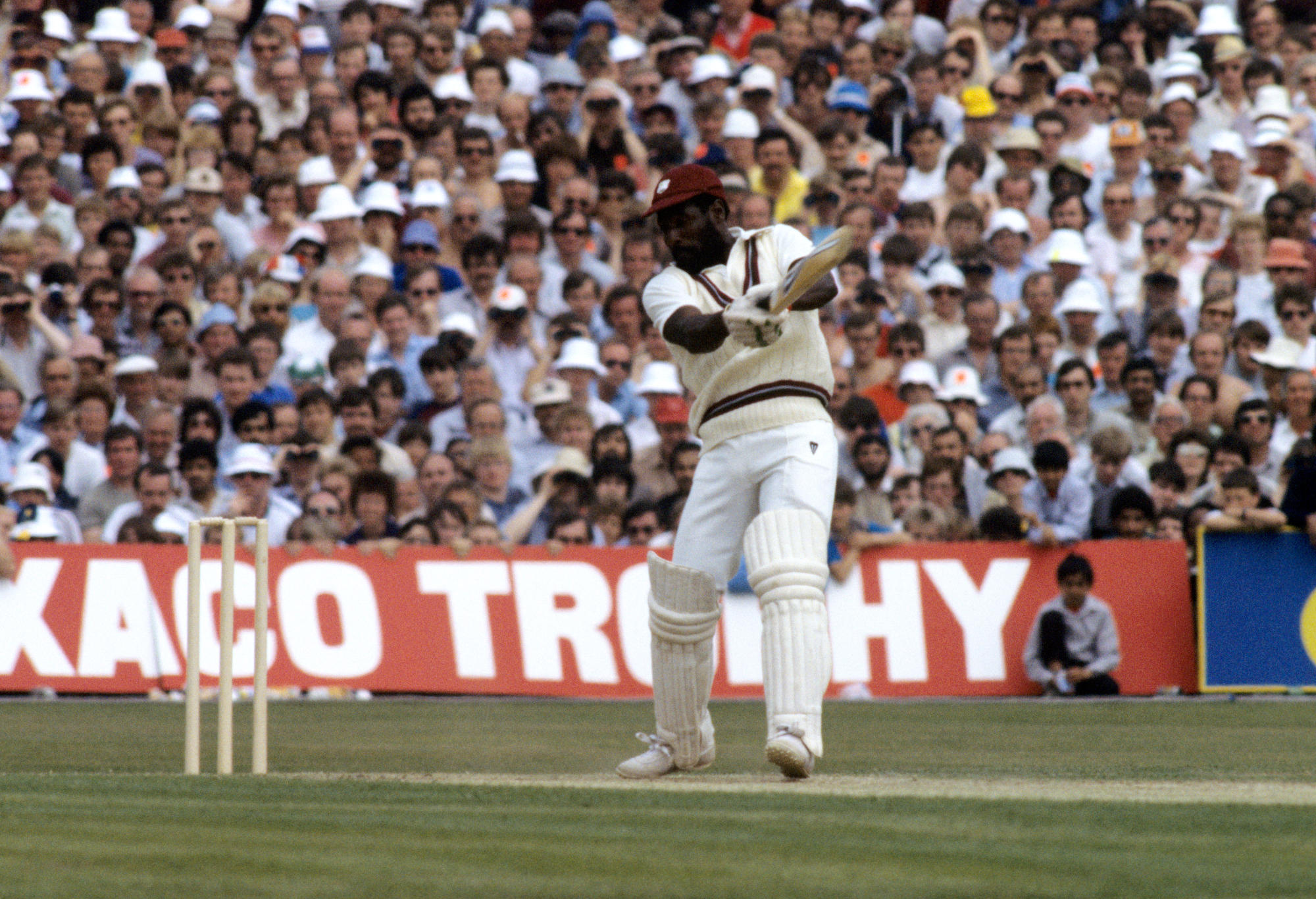
Vivian Richards batting (Photo: S&G/PA Images via Getty Images)
Richards delighted the crowd for a good part of the fourth day while adding 97 for the fifth wicket with Richardson. Needing 20 to finish with a Test average of above 50, he struck 60, lit with nine fours, before being caught by Hugh Morris at mid-on off Lawrence. Dujon was soon out for five, followed by Marshall for 17, as England were set a target of 143.
Patrick Patterson sent Morris back with only three runs on the board, giving Dujon the last catch of his Test career. The bowlers showed gumption, and at 80/4, the visitors were in with a sniff. Marshall scalped 1/9 to his kitty, nailing Graham Gooch as his final Test victim. However, Mark Ramprakash and Alec Stewart put on 62 for the fifth wicket to help England to a series-levelling five-wicket win.
Richards’ 8540 runs, Marshall’s 376 wickets and Dujon’s 272 dismissals were all West Indian records at the time (Dujon’s record still stands). Indeed, nobody knew it then but it was the beginning of the end of an era.
Curtly Ambrose (2000)
One of the most menacing speedsters in the game’s history, Ambrose decided to put a full stop on his glittering West Indian career in 2000. England regained the Wisden Trophy after 31 years, winning the five-match series 3-1 with a 158-run victory at The Oval.
Ambrose took 2/38 and 1/36, even as the visitors were let down by yet another inept display with the bat. The Antiguan finished the series with 17 wickets at 18.64 apiece, and his 98-Test career with 405 at just 20.99.
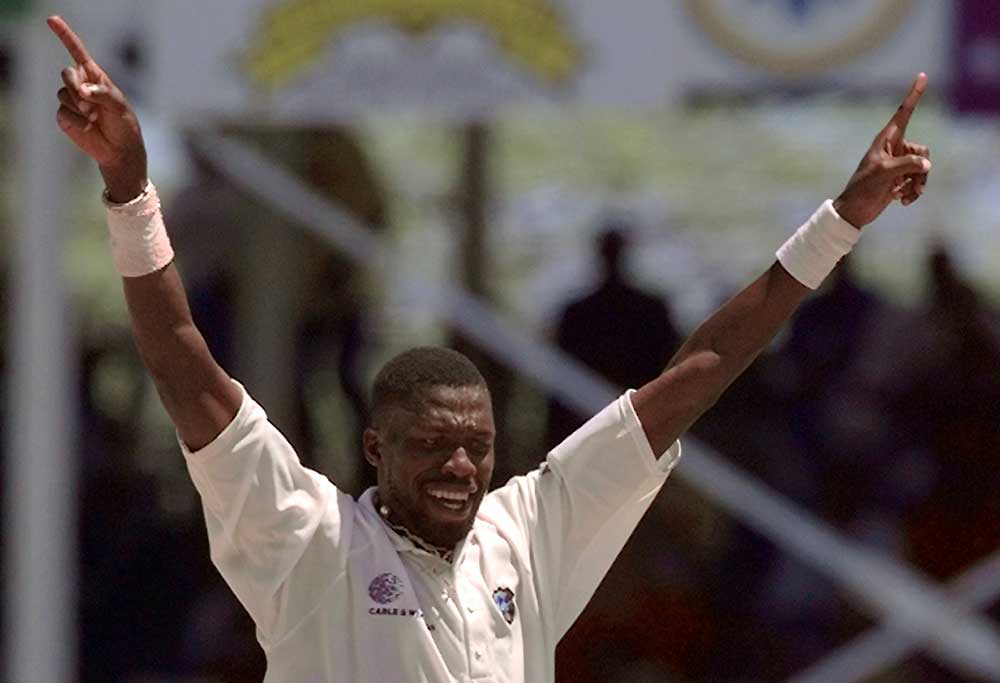
Curtly Ambrose was a terrifying force during the West Indies’ cricket dominance. (AP Photo/Lynne Sladky)
Michael Atherton (2001)
In a familiar story, England entered the final Ashes Test having already lost. The end of the series also saw the end of Atherton’s career – the opener hung his boots after Australia won 4-1 thanks to a clinical innings-and-25-run rout.
Atherton, who led England from 1993 to 1997-98, captained in place of the injured Nasser Hussain in the second and third Tests. He bowed out with scores of 13 and nine, falling to his bugbear Glenn McGrath in his final innings.
Alec Stewart (2003)
Two years later, another former English captain bid adieu to the game at The Oval. This concluding fifth Test against South Africa was a must-win for the hosts if they were to draw the series 2-2.
Courtesy of Marcus Trescothick (219), England racked up 604/9 to take a lead of 120, before chasing down 110 to win by nine wickets. Stewart scored 38 and took four catches behind the wicket. He retired as England’s most capped player and second-highest run-scorer in Tests.
Andrew Flintoff (2009)
‘Freddie’ Flintoff, England’s talisman in the 2005 Ashes, had one last crack at the Australians in his farewell series. In the second Test at Lord’s, he snared a match-winning 5/92 in the second innings.
At The Oval, Flintoff scored only seven and 22, and returned figures of 1/35 and 0/42, but Stuart Broad (5/37 in the first innings), Jonathan Trott (119 in the second innings) and Graeme Swann (8/158 in the match) did enough for a 197-run victory that handed England the series 2-1.
Michael Clarke (2015)
Following an Ashes-losing innings defeat in the fourth Test at Trent Bridge, Australian captain Clarke announced that he would be retiring after the final Test at The Oval. Steven Smith, who would replace Clarke at the helm, scored a determined 143 that carried Australia to 481. Clarke scored 15 in his last innings.
Australia limited the margin of the series defeat to 3-2, as England tamely capitulated for 149 in reply, and went down by an innings and 46 runs after following on.
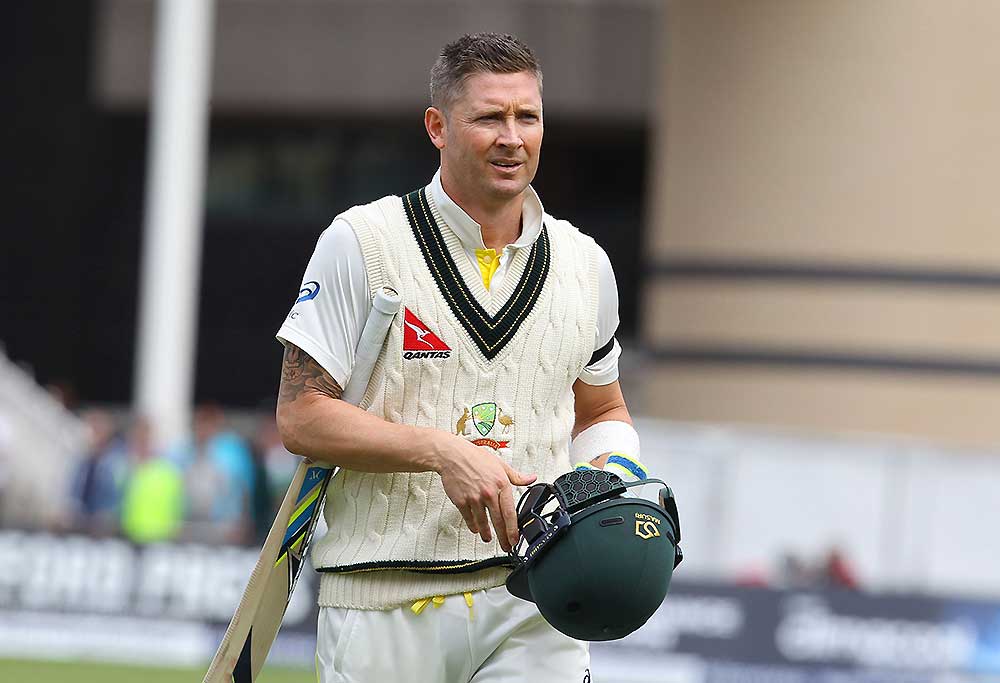
Michael Clarke (AFP PHOTO/Lindsey Parnaby)
Alastair Cook
England took an unassailable 3-1 lead after four Tests, but the form of long-serving opener and former captain Alastair Cook – 109 runs in seven innings – was a concern.
Prior to the Oval Test, Cook revealed that he would play only once more for England. He left on a high, scoring 71 and 147 in England’s 118-run win, becoming the fifth man to hit a hundred on his debut as well as in his last Test. His tally of 12472 Test runs is the highest for England and the fifth-highest overall.


































































































